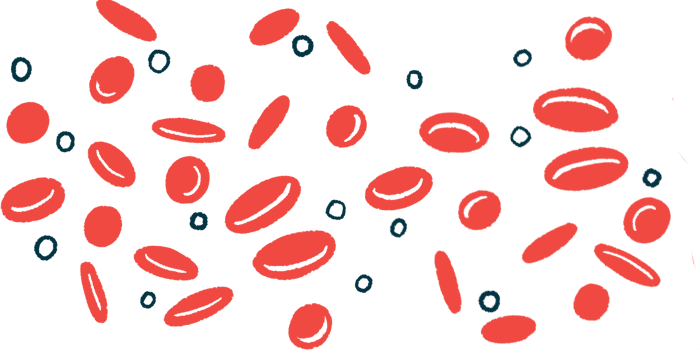Secondary CAD Found to Be Cause of Anemia in Lung Cancer Patient
Written by |

Cold agglutinin disease (CAD) and not the cancer therapy Keytruda (pembrolizumab) was found to be the cause of anemia in a 64-year-old man with lung cancer, according to a recent case report.
The patient’s CAD arose as a result of another type of cancer — a lymphoma — that had remained undetected, the report indicated.
While the case highlights the need to “not prematurely assume an uncommon autoimmune adverse event to be related to pembrolizumab,” it also underscores the importance of using a bone marrow biopsy or other tests to determine the cause of the CAD, according to researchers.
“In new cases of CAD, diagnosed while on pembrolizumab or similar agents, a bone marrow biopsy … can help distinguish” what induced the rare autoimmune disorder, the investigators wrote.
“This is important as treatment approach is very different” depending on the cause, they added.
The report, “Diagnosis and management of cold agglutinin disease associated with low-grade B-cell lymphoma in a patient receiving pembrolizumab for lung cancer,” was published in the journal BMJ Case Reports.
In it, researchers at Augusta University, in Georgia, described their treatment of the patient, who had a history of heart problems and extensive smoking, after he was treated at their hospital for a persistent cough and for coughing up blood for the previous two months.
Imaging scans of the patient’s lungs revealed the presence of a mass that likely was a tumor. This was later confirmed by a biopsy, and the patient was started on treatment.
The cancer-targeting treatment consisted of Merck’s Keytruda, given alongside two chemotherapy medications. Keytruda works by blocking the activity of certain proteins cancer cells use to escape immune cells. This allows the body’s immune system to more effectively target and destroy cancer cells.
Ten days after his first treatment cycle, the patient went to the emergency room (ER) complaining of pain in the chest and upper abdomen. Laboratory workup revealed that he had severe anemia, with abnormally low levels of hemoglobin — the protein used by red blood cells to transport oxygen through the bloodstream. He was given blood transfusions.
Notably, at this time, a direct Coombs test, which looks for antibodies that target and bind to red blood cells — like those that cause CAD — was negative.
Because the patient had recently undergone cancer treatment, his care team assumed that his anemia might be an adverse reaction to the treatment. They specifically suspected Keytruda, since anemia is a known side effect of the medication.
“The initial concern was pembrolizumab induced haemolytic anaemia since the patient’s complaints and severe anaemia were discovered shortly after his first round of [chemotherapy] and pembrolizumab,” the researchers wrote. “Given this concern, the patient did not receive the pembrolizumab during his second round of chemotherapy.”
Nonetheless, a week after his second round of chemo, the patient returned to the ER with similar complaints of abdominal pain, and laboratory tests again revealed he had severe anemia.
Around this time, laboratory workers noticed the patient’s blood was clotting inside test tubes when handled at room temperature — a hallmark feature of CAD. A Coombs test performed at this point came back positive, and a peripheral blood smear confirmed the diagnosis of CAD.
The researchers noted that CAD can be primary, meaning it can occur in the absence of any other illness or clear cause. But it also can develop secondary to an infection, autoimmune disease, or certain types of cancer.
A battery of tests for infections came back negative, but a biopsy of the patient’s bone marrow revealed that he had a low-grade B-cell lymphoma, a type of blood cancer.
B-cells are the immune cells that are responsible for producing antibodies. Just like any other cell type, when B-cells become cancerous, they grow and expand out of control. Further testing revealed that the patient’s lymphoma cells were making the antibodies driving CAD.
The patient, therefore, resumed his lung cancer treatment, including Keytruda, and also was given rituximab, a medication that lowers B-cell numbers.
“After the 4 weekly loading rituximab infusions, need for blood transfusions decreased significantly. … PET scan done after four cycles of chemoimmunotherapy showed partial response to lung cancer treatment,” the researchers wrote. The man was due to get maintenance rituximab every eight weeks for a year.
The report also included the patient’s perspective, in his own words.
“I have been a case where when one thing is straightened something else goes wrong. It has been difficult to deal with,” the man said. But he added: “Whatever is thrown at you, you deal with it. I look at it as one more thing to do and I keep going.”






